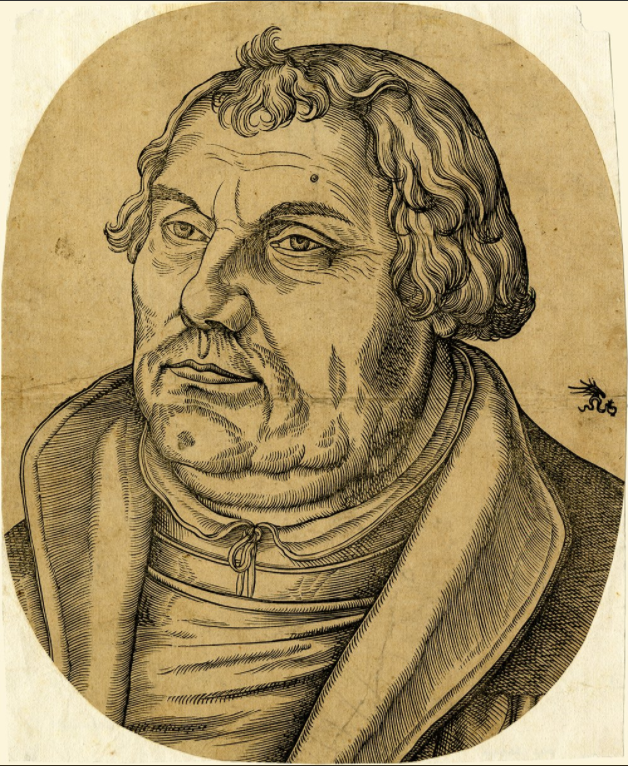
In the early 1500s, while the world was in what’s known as the Dark Ages, the church was suffering through dark ages of its own. It had degenerated into man’s default approach to a relationship with God—that you must earn that relationship, that God gives grace to those who work for it. What’s worse, the church had figured out how to make money off the people in helping them earn that relationship. Because only the priests had access to God’s Word (which at the time was only in the language of the elite, Latin) no one knew the better. The church needed reformation. Struggling with this idea of “earning” a relationship with God, Martin Luther launched into a personal study of Scripture on his own. Martin Luther’s experience led to the needed reformation of the church, and the unleashing of God’s grace. However, even now, 500 years later, we still tend to degenerate into that default approach to a relationship with God, thinking we need to earn that relationship. Maybe we all need our own personal reformation.
So, let’s round up Luther’s theses to an even 100 with five personal reformations of our own.
- God’s Word:
Along with Luther’s grace reformation came the dissemination of the Word of God in the common languages of the day. God’s Word was no longer tied up in Latin—the language of the elite and the priests. This led to an explosion of illumination and some historians point to this phenomena as the catalyst for moving civilization out of the Dark Ages.
And while God’s Word is no longer tied up in an elite language, it is constrained by other things, such as:
- our busyness
- our doctrines and dogmas
- systems of theology
- our learning styles
And many more. Our busyness keeps us as distant from our Bibles today as Latin did in the Dark Ages. This then causes us to rely more on systems of theology and our church traditions for understanding God’s Word than on Scripture itself. Further, our doctrines and dogmas can lead us to live under the thought that all questions are answered and there’s no need to keep exploring. This not too different than pre-reformation. Maybe it’s time to readjust your schedule and even your paradigms and figure out how you can unleash God’s Word in your life.
- Grace:
It does seem that our default approach to a relationship with God is that we need to earn it. Maybe it’s because our fallen DNA has a strong strand of self-centeredness. We keep ourselves as the subject of the salvation process (the one doing the action) rather than the object of the salvation process (the one being acted upon). Ephesians 2:1-10 is all over this. Volumes have been written on the subject of grace, so I will offer one simple suggestion that might help you explore a personal reformation of grace in your life: If you don’t have at least a slight feeling that you are taking advantage of God in your relationship with Him, then you are probably not embracing grace as the gift that it is.
- Evaluate your Rituals
We have the ability to turn meaningful experiences into meaningless rituals. This may be the reason why the Pharisees were so prominent throughout the gospels. They were there to give us a glimpse into what we might look like to God as we go about our spiritual routines. One of the definitions of reform: to change to a better state. Luther’s 95 Theses challenged the deepest practices of the church. In the same fashion, we would do well to ask why we do what we do, both personally and in our ministries. Can our rituals and traditions be easily traced to a solid biblical principle? Or are our spiritual practices simply distant emanations from something that was real a long time ago?
- Recommit to Prayer
You’ve probably heard Luther’s quote on prayer: I have so much to do that I shall spend the first three hours in prayer. In our busyness, even our ministry busyness, prayer is usually the first thing to go. And yet it is exactly what we need as we navigate our busyness. Use the occasion of the 500th year celebration of the reformation to reform your personal prayer life. Seek to adopt the resignation to prayer that Luther’s quote connotes. The busier you are, the more you need to pray.
- Read the 95 Theses
While the 95 Theses are very specific to the situation of the church at the time, it’s a worthy exercise to read the actual words that sparked the Protestant Reformation. You can find an English version here.
And if you liked Luther’s quote about prayer above, you will enjoy reading other quotes here.
Download a teen devo on this subject here.
Luther art from the British Museum.